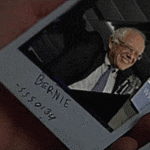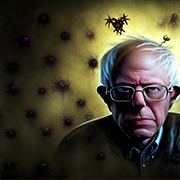|
Mark Zuckerberg posted:A lot of you have asked what we're doing about misinformation, so I wanted to give an update.
|
|
|
|

|
| # ? Apr 28, 2024 19:19 |
|
Fart of Darkness posted:The original post is here. It seems like Mark Zuckerberg is owning up to his platform's share of the blame. I'm curious to see the specifics of how Facebook will do things like verification and quality checking while also avoiding cries of censorship. I'm skeptical that any sort of measures to curb fake news and verification will go down as "Lubbrul Propagander". Even the backlash from Snopes is wild.
|
|
|
|
Schizotek posted:I think there's a pretty big gulf between the media reporting on someone who turned out to be lying about something that would otherwise be pretty mundane and the never ending stream of insanity that the fake news stuff is about. Like college rape is a pretty common thing, and there's not actually much fact checking a news site can do for that. Compare that with say, "Dearborne is under sharia law as MUSLIM savages rape your pure white women" poo poo that there's a whole literal loving industry built around. Not an industry around making claims or reporting garbage like that. A large well funded speaking circuit and think tanks built around that one single claim. Like even if you don't trust anyone but the dumb assholes who spawned the lie, you can GO VISIT DEARBORNE. If it was true there wasn't much fact checking you could do on a college rape story, why did Rolling Stone come out and admit their story was a failure of basic journalistic practice. http://www.rollingstone.com/culture/features/a-rape-on-campus-what-went-wrong-20150405 rolling stone posted:Rolling Stone's repudiation of the main narrative in "A Rape on Campus" is a story of journalistic failure that was avoidable. The failure encompassed reporting, editing, editorial supervision and fact-checking. The magazine set aside or rationalized as unnecessary essential practices of reporting that, if pursued, would likely have led the magazine's editors to reconsider publishing Jackie's narrative so prominently, if at all. The published story glossed over the gaps in the magazine's reporting by using pseudonyms and by failing to state where important information had come from. The reporter went looking for a story, found something she felt fit and was interesting enough and rushed to print instead of actually putting in a good level of investigation. That within days of the story being published she had contacted her editor to express her doubts the story was true should be a serious red flag to the practices of the journalist and the publication. The issue I am trying to get across is while there is tons of infowars level idiocy cropping up on facebook constantly, its very clearly idiotic and easy to be brushed off by the 'serious' right wingers as obvious clickbaity bullshit. When what is considered a reputable publication gets lost in the weeds of what they think the truth is and publishes something that from the outside was clearly a troll in the guardian case, or fails to fact check properly due to a motivation to publish a specific narative in the rolling stone case, what is supposed to be the sensible reliable voices ends up being tarnished and a viable route of attack from the right as just more liberal lies. The other issue is the fake news stuff, while probably not a dog whistle for political censorship, sure sounds awfully close when people are publishing lists of 'fake news purveyors operated by the Kremlin' which is just a list of anyone who disagrees with Hillary Clinton's circle. Running a story like that list was another black mark on the non-RWM that hurts the cause of actually presenting facts to the world at large.
|
|
|
|
Vargatron posted:If only there were some piece of legislation that would require journalists to report both sides of a story... They already do this for TV media routinely, but it's awful without strict controls on what counts as an engagement-worthy "side of the issue" The industry flack-man or the paranoid silver-eating "concerned citizen" might deserve acknowledgement, but there's already too much engagement where they're granted equal footing in a two-sided discussion against actual experts. The anchors and hosts have been choosing to have fruitless kabuki discussions which always end with INTERESTING, BUT WE'LL HAVE TO LEAVE IT THERE
|
|
|
|
Killer-of-Lawyers posted:Shame not everyone got taught about the validity of sources in school when they were doing their first research papers. Also lol at the perfect example of why the problem is so bad showing up in the thread. Everyone got taught something I'm sure, but people don't necessarily have the right toolkit in a changing world.
|
|
|
|
Vargatron posted:If only there were some piece of legislation that would require journalists to report both sides of a story... Alluding to the Fairness Doctrine or ......?
|
|
|
|
I was thinking about buying a subscription to the Washington Post to try and support real journalism, but lol at that fake "Russian propaganda" story that they published. Is it worthwhile to try to support these established and well-recognized news organizations, even though almost all of them have been complicit in our current media trainwreck? I don't want my  going towards lovely journalism, but I also don't want the true crackpot news organizations to push out the more legitimate ones that are at least attempting to bring out the truth. going towards lovely journalism, but I also don't want the true crackpot news organizations to push out the more legitimate ones that are at least attempting to bring out the truth.
|
|
|
|
Senior year of college (about 6 years ago) I took a media literacy class. I was the only one in the class that understood what socialization and hegemony were. It was really concerning to see actual adults struggle to understand and consider who or what was providing the information.
|
|
|
|
CheeseSpawn posted:Alluding to the Fairness Doctrine or ......? Correct.
|
|
|
|
Vargatron posted:Correct. The Fairness Doctrine was and is a terrible idea. The government shouldn't be in the business of determining whether news media has been fair to "both sides," or even when there are two meaningful sides of an issue to begin with. Do you really want the FCC under Trump having that kind of power?
|
|
|
|
Silver2195 posted:The Fairness Doctrine was and is a terrible idea. The government shouldn't be in the business of determining whether news media has been fair to "both sides," or even when there are two meaningful sides of an issue to begin with. Do you really want the FCC under Trump having that kind of power? That's what I was shooting for in replying to Vargatron too. We already end up treating low-value splinters as 'sides' to a discussion (often ignoring other, actual, sides) and I imagine it'd get even worse while adding a FAIR CERTIFIED stamp on bad media.
|
|
|
|
It's not just about the ability to recognize bias. It's about a basic understanding of the mechanisms of good journalism. There are standards that you can apply regardless of what side you're on, or what side you think the news is on. Is it verifiable? Does the reporter do their own research and cite it to confirm or deny what a source says? Is it even a reported story, or just an unedited interview or live interview? Who is on a panel - and does a panel discussion even add value to the story? A lot of what's out there is bad journalism not because it's biased, but because it's lazy, ill-considered reporting. Or worse, it's not reporting at all, and instead it just puts sources on the air directly without the research and writing portion of a story - increasingly common because it's much cheaper and faster.
|
|
|
|
People tend to focus really hard on whether the news is liberal or conservative, and that's putting the cart before the horse. You're just looking at the end product and saying "does this take a side" rather than applying consistent principles. In other words, it's a search for objectivity that isn't based on objective standards. That's how you end up with the "two people who disagreed with each other were on TV, therefore it was objective" idea.
|
|
|
|
FactsAreUseless posted:People tend to focus really hard on whether the news is liberal or conservative, and that's putting the cart before the horse. You're just looking at the end product and saying "does this take a side" rather than applying consistent principles. In other words, it's a search for objectivity that isn't based on objective standards. I haven't thought of this before and now feel like snuffing it (not really but drat).
|
|
|
|
I know this thread was made in the context of political news, but I have to point out that this poo poo has been going on at a serious clip for years with regards to alt-medicine, fake science reporting and so on. Quacks like Andrew Wakefield, Food Babe, Dr. Mercola. I'm just surprised that the issue of fake news is only coming to the forefront now, and only in the context of politics. EDIT: Also, do we include conspiracy poo poo in the category of fake news as well? Loose Change and all that garbage? Or is that in a category of it's own?
|
|
|
|
Solkanar512 posted:I know this thread was made in the context of political news, but I have to point out that this poo poo has been going on at a serious clip for years with regards to alt-medicine, fake science reporting and so on. Quacks like Andrew Wakefield, Food Babe, Dr. Mercola. I'm just surprised that the issue of fake news is only coming to the forefront now, and only in the context of politics.
|
|
|
|
Potato Salad posted:I haven't thought of this before and now feel like snuffing it (not really but drat).
|
|
|
|
FactsAreUseless posted:I don't know what this means. I read a lot of international state news outlets. Like, I'm familiar now with what to expect from Hurriyet vs Sozcu vs BBC vs RT (and thus r/the_donald, not making GBS threads you) regarding [paste Syrian development of the day here]. On reflection, I'm finding that I read unfamiliar sources by first scanning for slant. 
|
|
|
|
It's not just dumb people that fall into this, I've got a fair share of high school dropout racists and multi-master degree engineers where I work that buy this poo poo hook line and sinker. Then again engineer brains are kinda hard wired...
|
|
|
|
FactsAreUseless posted:People tend to focus really hard on whether the news is liberal or conservative, and that's putting the cart before the horse. You're just looking at the end product and saying "does this take a side" rather than applying consistent principles. In other words, it's a search for objectivity that isn't based on objective standards. That's how you end up with the "two people who disagreed with each other were on TV, therefore it was objective" idea. This is a fantastic point and really offers up the closest I've seen to a solution to this problem.
|
|
|
|
sitchensis posted:This is a fantastic point and really offers up the closest I've seen to a solution to this problem. It's shortsighted to just talk about news media, because fiction is even more influential. The things that form someone's worldview isn't just the news, it's the cultural ideas they get from movies and television and music. I like to remind people that Antonin Scalia cited Jack Bauer in a case on enhanced interrogation. We need to show children how to take the skills they learn in English class and apply those skills to the rest of their lives. This isn't to say we shouldn't teach literature, because literature has lots of value (although we can argue about what literature gets taught). Studying the written word is hugely important. But we need to expand English classes beyond just that. We're teaching children how to understand their language and communicate with others who share it. It's called English for a reason. So all the other places in which the English language is being used to convey cultural and political ideas need to also be part of the curriculum. History classes as well. It's absurd to me that English and History are two different subjects, because in both cases you're studying the cultural and linguistic products of the English-speaking world. Even studies of foreign nations and languages are filtered through that understanding. Potato Salad posted:I read a lot of international state news outlets. Like, I'm familiar now with what to expect from Hurriyet vs Sozcu vs BBC vs RT (and thus r/the_donald, not making GBS threads you) regarding [paste Syrian development of the day here]. On reflection, I'm finding that I read unfamiliar sources by first scanning for slant.
|
|
|
|
Beastie posted:Senior year of college (about 6 years ago) I took a media literacy class. I was the only one in the class that understood what socialization and hegemony were.
|
|
|
|
FactsAreUseless posted:It's not just about the ability to recognize bias. It's about a basic understanding of the mechanisms of good journalism. There are standards that you can apply regardless of what side you're on, or what side you think the news is on. Is it verifiable? Does the reporter do their own research and cite it to confirm or deny what a source says? Is it even a reported story, or just an unedited interview or live interview? Who is on a panel - and does a panel discussion even add value to the story? This sounds good until it turns out that all these fake news sites DO have sources and the sources have sources and the link has links to very important sounding websites and this has all gone on long enough that it's not as simple as one website acting alone to make fake stuff. It's one fake site siteing another fake site citing a book that maybe discredited but if you don't look that up right you'd not notice. Like want some fake news that climate change is fake? I can point to quotes from the president of united states agreeing with it. I can point to entire scientific journals that sure look real. I can point to hundreds of websites with hundreds of thousands of users. etc. Like fake stuff is pretty deeply embedded. It isn't hard for one site to verify the other side and then that site to be verified by something else. Way back to the point it is hard for people to know if they don't already know.
|
|
|
|
The discussion about media bias and fairness doesn't even seem to have a real world application anymore. If I disagree with a news story and you point me to a source that verifies the position I disagree with, well your fact checker is also biased. I can continue that ad nauseum through however many layers of verification I need to to protect my preconceived notion. Hell I can go so far as to admit that you are factually correct but it doesn't matter because I feel a certain Way and that's just as valid. People are unironically interpreting news and issues in this way at an astonishing rate.
|
|
|
|
Owlofcreamcheese posted:This sounds good until it turns out that all these fake news sites DO have sources and the sources have sources and the link has links to very important sounding websites and this has all gone on long enough that it's not as simple as one website acting alone to make fake stuff. It's one fake site siteing another fake site citing a book that maybe discredited but if you don't look that up right you'd not notice.
|
|
|
|
FactsAreUseless posted:They aren't trying to hide behind objective reporting. They're just dismissing it entirely. Reality has a liberal bias, so realist must be incorrect.
|
|
|
|
FactsAreUseless posted:Except that part of good journalistic practice is understanding the difference between a good or bad source, and one of the ways you can tell is if there's a preponderance of experts in a field saying otherwise. Cherry-picking sources to get a conclusion is bad journalistic practice, which is what lovely and fake news sites do. That's an objective standard you can use to say "this is not good reporting." Reporting that fails to put something into context, for instance by ignoring the overwhelming number of scientists who agree that climate change exists, is bad reporting. People need to be able to recognize it not just through the conclusions a story reaches, but by pointing to specific practices and standards and saying "this failed to do this" or "this used this bad practice" the same as you would in evaluating, say, a peer-reviewed study. And news reports are a lot less complex than peer-reviewed studies. People can be given the knowledge they need to do this. But if your only definition of bad reporting is "it reaches the wrong conclusions," well, people are just going to keep looking for journalism that reinforces their worldview. Not shockingly, places like Breitbart are really bad at basic elements of journalism. They've just turned that into a good thing, by saying "but look, these good standards of journalism produce conclusions you don't agree with, so they must be the evil tools of the mainstream media" They aren't trying to hide behind objective reporting. They're just dismissing it entirely. Yeah, but I mean, it's brain in the jar matrix stuff. If you want to spread a lie just tell the reader the scientists all agree with you. If you want articles to point to specific statistics and practices the article can write they did that just as much as a real one did. The core of an article being fake is that it is fake. It can lie. Historically fake websites lie poorly. But that isn't a rule of nature and we are moving away from fake news that is lovely geocities pages to fake news that is on websites that look as professional as CNN and write as professionally as anything, and make up facts that support their conclusion and then lie and say they didn't make those facts up!
|
|
|
|
DACK FAYDEN posted:Does hegemony have a field-specific definition when you're talking about information generation and consumption? I don't honestly see how it's related here The way it was taught in class was that basically it's socialization by the media to get you to see things their way. Boys play with GI Joes because that's who they show playing with them. Kids want the box of Cheezits with Sponge Bob on them and can't explain why. They don't know that it tastes the same, costs the same. People aren't wired to want to spend money but kids know about it right away from consuming content.
|
|
|
|
Owlofcreamcheese posted:Yeah, but I mean, it's brain in the jar matrix stuff. If you want to spread a lie just tell the reader the scientists all agree with you. If you want articles to point to specific statistics and practices the article can write they did that just as much as a real one did.
|
|
|
|
FactsAreUseless posted:based on objective standards of how they report, Okay, but how do you know how they report? If you ask them they will lie.
|
|
|
|
Remember This Article? It Was Pro-Trump Propaganda, and a Lot of Us Fell for It This is interesting. I found myself questioning the truth of this article. So I looked up the article it's about The Coddling of the American Mind and misread something written ambiguously spent 20 minutes exploring the ambiguous phrasing and then realized I just wasted a ton of time. This poo poo is hard. Harold Fjord fucked around with this message at 21:11 on Dec 2, 2016 |
|
|
|
Has the Guardian responded to that the piece they but out about the guy that almost fell to the alt-right had an accrual alt right some claiming he wrote it
|
|
|
|
Nevvy Z posted:Remember This Article? It Was Pro-Trump Propaganda, and a Lot of Us Fell for It I regularly read CityLab.com, an offshoot of the Atlantic, and I noticed that for months and months at a time, that Coddling of the American Mind article would consistently be at the top of the 'Most Read This Week' list of recommended articles from their other sites. It must have received an enormous amount of clicks.
|
|
|
|
Nevvy Z posted:Remember This Article? It Was Pro-Trump Propaganda, and a Lot of Us Fell for It Related article: https://www.theguardian.com/us-news/2016/nov/30/political-correctness-how-the-right-invented-phantom-enemy-donald-trump?CMP=twt_gu
|
|
|
|
UV_Catastrophe posted:I was thinking about buying a subscription to the Washington Post to try and support real journalism, but lol at that fake "Russian propaganda" story that they published. Give  to Democracy Now. There's news sites out there doing good journalism, they just aren't the 'established and well-recognized news organizations' to Democracy Now. There's news sites out there doing good journalism, they just aren't the 'established and well-recognized news organizations'
|
|
|
|
Call Me Charlie posted:Give I was about to respond to this by criticizing Democracy Now, but I looked at their website and it's a lot better than I remember it being. Was it always an OK site and I remembered wrong, or did it become less crazy at some point?
|
|
|
|
There will never be a perfect news source you can trust implicitly, that is why you need to read and understand what you are consuming. Part of the problem with the whole main stream media crap is it pushes people left and right to find news that caters to their biases rather then simply casting a critical eye to all media. Don't fall for that trap!
|
|
|
|
Owlofcreamcheese posted:Okay, but how do you know how they report? If you ask them they will lie.
|
|
|
|
It's very important to be able to articulate what makes journalism good or bad, because otherwise you fall into the reputation trap. That's when you say "I trust the New York Times, it has a very good reputation," and they say "I don't trust it" and you say "You should" and they say "Why?" and you say "Because it has a very good reputation." Which is why media literacy should be taught in schools. Reporting isn't the only field where this happens - at all - but it matters.
|
|
|
|

|
| # ? Apr 28, 2024 19:19 |
|
FactsAreUseless posted:Do you actually think it's impossible to look at or listen to a piece of news and analyze it the way you would any other piece of professional work? You don't tell what good reporting is by asking the reporters if it's good. Do you have any idea at all what you're talking about? Like do you actually know anything about journalism? I think it is absolutely possible for fake news to be written in a way that appears to be the highest level of journalistic standards. Well reasoned and well supported with careful cites of every fact and huge number of collaborating information from apparently extremely legitimate sounding sources. I don't think a house of cards like that can stand up to scrutiny by someone that actually knows but for most people if something claims a thing with data and statistics and they go and check out the data and statistics the information came from and that looks good and many other similarly professional seeming outlets have similarly well developed and apparently researched information gathering. it's going to catch a lot of people who aren't going to go to step 4 or 5 or 6 and realize that it's all made up. That the scientific journals cited don't say that or are all only published in vanity journals with convincing seeming names and webpages and all the quotes from experts are made up and collaborated by other sites that also made the stuff up. Like if I wanted to claim 18% of pork shoulder contains hook worm cysts. I could make a dozen very professional news websites, write extremely long and detailed articles that mention that, quote the USDA saying it's true with dozens of websites I also hosted saying the USDA confirmed it said that and all link it to a bunch of scientific journals I also wrote and submitted to poor quality publishing farm fake scientific journals that most people wouldn't know were fake. At that point I could add that fact to wikipedia and a dozen other sites would use that number because they checked wikipedia and wikipedia seemed to have some good sources. And maybe someday CNN would just say in some throw away cooking safety throw away segment, then I got cites from CNN saying it's true. And none of this would ever trick someone who actually knew for even a second, but it's a huge web of apparently good journalism eventually built on the bones of bad journalism because the original was just lies.
|
|
|



























